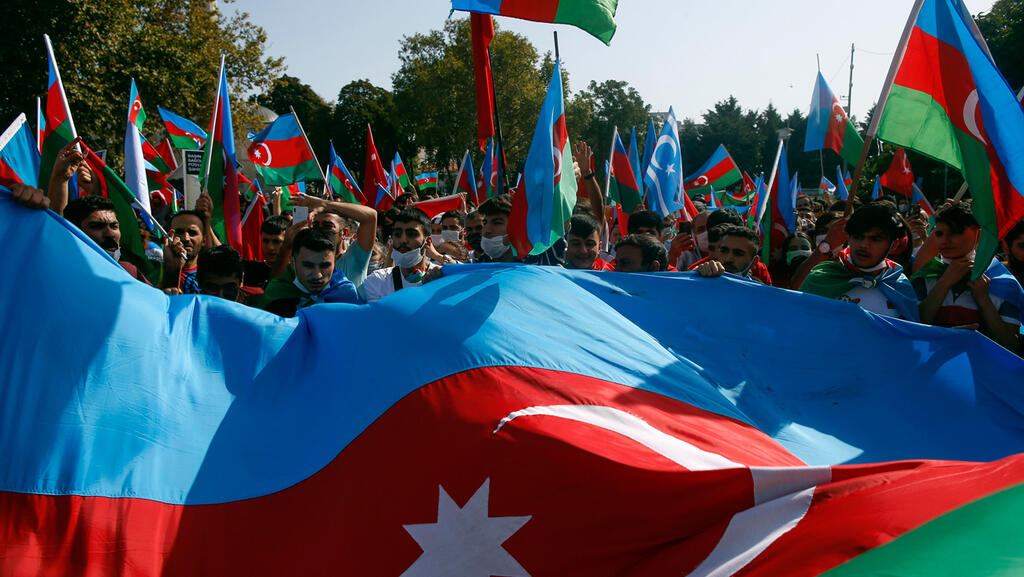Getting your Trinity Audio player ready...
Try to pick a word or two to describe Israel's recent conduct in its foreign relations. Initiative? Sorry. Building ties? Wrong. Vision? No. Promoting alliances? Negative. What then? Reprimands. More precisely – severe reprimands. Whom do we reprimand? Whom don't we? United Nations officials and agencies (often with good reason), credit rating companies, Jewish organizations that hold independent opinions, America, and more.
Take Armenia. Several days ago, it recognized a Palestinian state and explained that it supports a two-state solution, the release of the hostages, etc. Almost immediately, the country's ambassador was summoned to the Foreign Ministry in Jerusalem, where he was severely reprimanded, the latest in a long line of reprimanded envoys.
We have several similarities with Armenians. Like "Jew" and unlike most identities, "Armenian" implies both religion and nationality. Like us, their language and its script are exclusively theirs. They too have a large diaspora.
And like us, the Armenians underwent, how shall I say it, the thinning of their populace by a major power. Around World War One, hundreds of thousands of Armenians – estimates reach a million and a half – suffered indescribable deaths, like thirst in the desert. It is said that when Hitler's advisors questioned if he could get away with the Final Solution, he reminded them that the world had kept silent in the face of atrocities perpetrated on Armenians, and assured them that it would again do nothing.
Why did I use such convoluted terms to describe deliberate annihilation? Because, unlike dozens of countries, and despite the Holocaust being such a central feature of its being, Israel refused to describe those events as "genocide". Turkey is angry when such intent and action are attributed to its predecessor, the Ottoman Empire, and the relations with Turkey are - or were - important. For decades, Israel faced a choice between values and interests. It is fair to think that a country with Israel's past must recognize deliberate harm to another nation. It is also fair to think that a country must primarily consider its interests. In this case, Israel chose interests.
For the record: in January, when Turkey joined South Africa against Israel in The Hague, our Foreign Minister tweeted against "the country which carried out the Armenian genocide". I don't know if this was a single statement or if it reflects a policy change. Even if so, it did not happen on the merits but done solely to criticize Turkey.
There were reports that Armenia complained that arms supplied to Azerbaijan were used in the conflict in Nagorno Karabakh, during which some one hundred thousand Armenians had to flee. Azerbaijan is a Shiite Muslim country bordering on Iran, and it sells us oil. Moreover, Israel needs an advanced weapons industry and exports are essential to maintain it. Interests, fair enough.
Harassments of Christian institutions and personages in Israel in general and in Jerusalem in particular have been widely reported. The Armenian Quarter is on the way to the Western Wall and to Mount Zion, and so Armenians, who have had a community in Jerusalem since the 4th century, suffer more than other sects.
Armenians are spread throughout the world, including the Middle East. Perhaps the interests of those minority Armenians are connected to the recent decision? Perhaps it has other considerations, like its relations with Iran, or that Russia supplies it with weapons?
 Tova Herzl
Tova HerzlThere have recently been antisemitic episodes in Armenia, and the pros and cons of the recent Armenian step can be debated. Those are beyond the scope of this article. I will limit myself to suggesting that instead of self-righteous finger-wagging towards whoever doesn't toe the line, Israel would do well to ask itself to what extent it takes into account the interests and sensitivities of those countries whose support it expects.
- Tova Herzl is a former Israeli ambassador to South Africa and the Baltic countries, and served as liaison between the U.S. Congress at the Israeli Embassy in Washington




